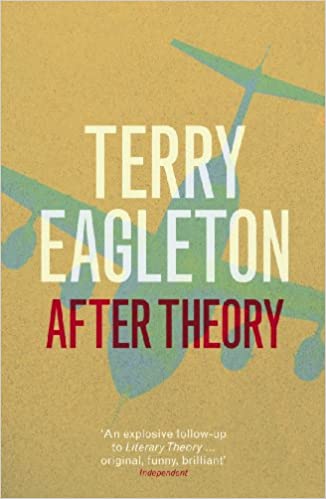What do you think?
Rate this book


224 pages, Hardcover
First published January 1, 2003
It has been shamefaced about morality and metaphysics, embarrassed about love, biology, religion and revolution, largely silent about evil, reticent about death and suffering, dogmatic about essences, universals, and foundations, and superficial about truth, objectivity and disinterestedness. This, on any estimate, is a rather large slice of human existence to fall down on.That is, we need to address these human essentials with vigor, passion, and belief in our purpose—need to reaffirm and/or rediscover truths and absolutes, avow that objectivity and values are copacetic and complementary, not antagonistic and exclusive—sufficient for the economic, political, philosophical, and cultural redresses and realignments that must be effected if we are to salvage the type of societies that the author still believes are realizable and necessary. Otherwise, we're playing ineffectual word games in cloistered halls, tilting at ever more marginal windmills and/or dividing ever more finely our goals, while effecting precious little—and losing what former gains remain—on the larger stages that matter. As Eagleton states:
We can, perhaps, be ironic about our deepest commitments, acknowledging their arbitrariness, but this does not really slacken their grip upon us. Irony does not go as far down as belief.Frankly, it's refreshing to read a committed leftist voice speaking in utterly clear tones while avoiding the hedgerow mazes of irony and diversity and niche radicalism and abandonment of any absolutes in meaning and verity that have constituted—read, plagued—the partisans of les Gauches since the emergence of the New Right in the eighties and their ascendance—assisted by the evaporation of Communism and inspissation of Libertarianism—in the nineties. I've seen Eagleton catch a lot of flack because he's wealthy, owns several properties, and is deemed to be pontificating shopworn professorial Marxism inutilely from the cloistered (and well-compensated) confines of his academic perch. Fuck that nonsense. He's gained experience over the years, earned wisdom, observed failures and flailing, had time to drink in progressive trends and econo-socio-political realities, and has, IMO, adjusted his critical filter and prescriptive rangefinder accordingly. That's not to say he's abandoned Marx, because, as a recent title of his testifies to, he still believes the Big Man was right. And while he takes too much and too freely from the dinner spread of that bitter German chef—from stubbornness instead of naivety—Eagleton also displays what seems to me to be a usable sense of what is achievable within the framework of his Old School Marxism and its concomitant staking to a class-political-economic trifecta; he refuses to lose the good in pursuit of the perfect; and perceives that the Hegelian dialectic is a useful tool in this actually existing world abounding in contradictions—and bully for him for doing so. It is my opinion that the lack of a vibrant, envisioned, and realistic left-wing has caused a noticeable imbalance in the Western world, one that has subsequently been filled by the irrational screeds of frenetic fundamentalism and rebarbative resentment couched within nationalist and religious denunciations of a tepid millennial outreach towards international comity and empirical soundings. So three cheers for Eagleton putting it out there in this slim but substantive book.